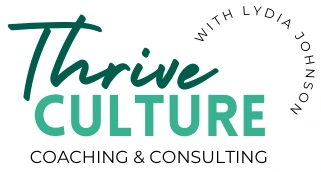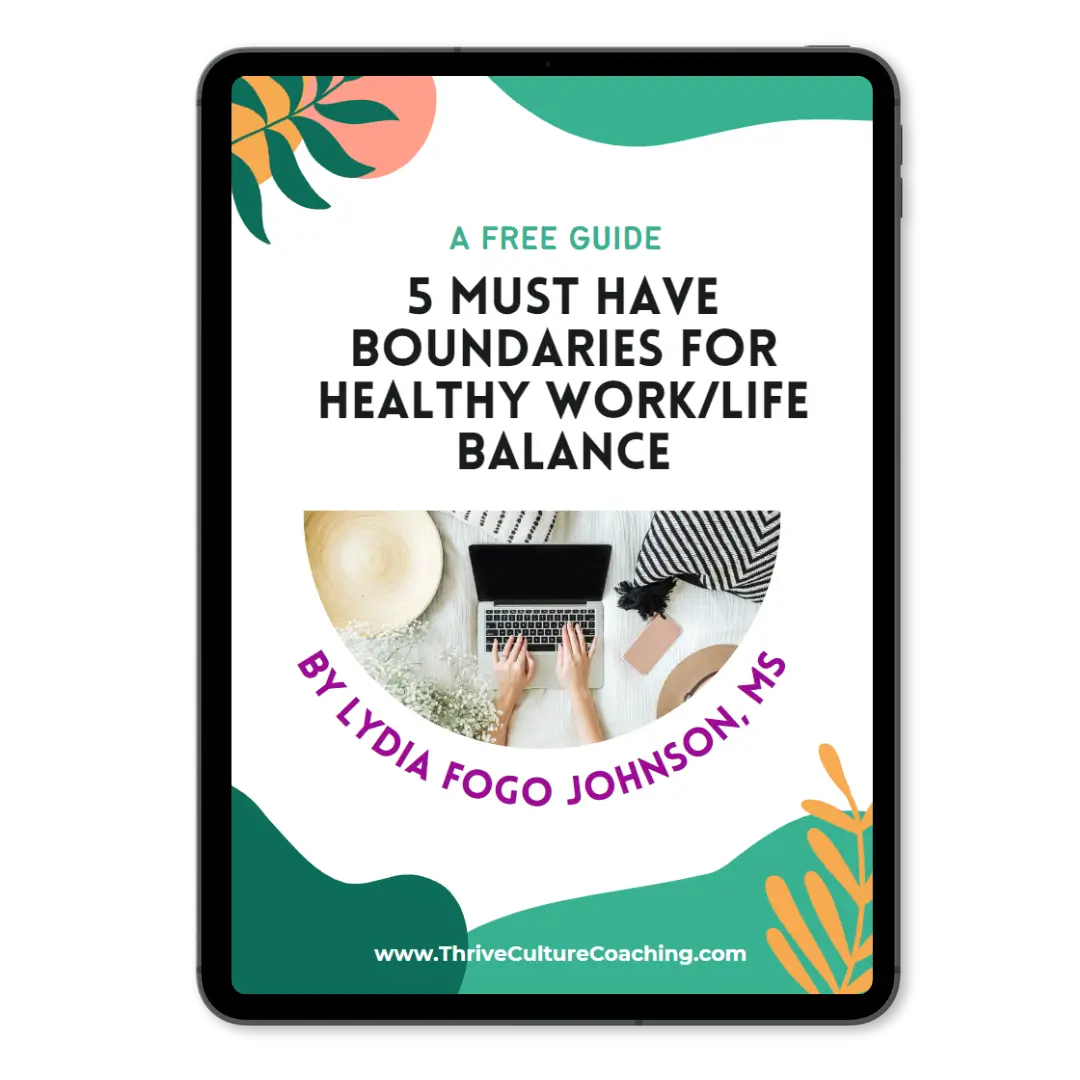Table of Contents
- Human Giver Syndrome: What it Is & Where it Came From
- The Difference Between a Human Giver vs. a Human Being
- Women’s Burnout is Partially Due to Human Giver Syndrome
- Let’s Talk About Martyrdom & Motherhood Burnout
- How to Tell if You’re Suffering from Human Giver Syndrome
- Common Signs & Symptoms
- Human Giver Syndrome as a Mom
- Human Giver Syndrome at Work
- How to Heal From Human Giver Syndrome
- Actions to Take to Reduce Your Stress & Overwhelm:
- Actions to Reduce Your Motherhood Burnout:
- How to Reduce Burnout at Work:
- Get Professional Support from a Women’s Burnout Coach

Photo by Sydney Sims on Unsplash
Human Giver Syndrome: What it Is & Where it Came From
Do you feel constant pressure to be happy, pleasant, perfect, and pretty at all times, no matter the cost? If you ever plaster on a patient smile when all you want to do is take a break and do something for yourself for once, you might not just be struggling with people-pleasing—you might be experiencing human giver syndrome.
Human giver syndrome was first coined by the feminist and social philosopher Kate Manne, Ph.D., in her 2017 book Down Girl: The Logic of Misogyny. The idea was then popularized by Amelia Nagoski, DMA, and Emily Nagoski, PhD, in their book Burnout: The Secret to Unlocking the Stress Cycle, which is where I first heard this world-shattering phrase.
Coined by feminist philosopher Kate Manne, Ph. D., in Down Girl: The Logic of Misogyny and popularized by Amelia and Emily Nagoski in Burnout: The Secret to Unlocking the Stress Cycle, human giver syndrome refers to the belief that you have a moral duty to give every ounce of your humanity to support others—regardless of the toll it takes on you. Essentially, those with human giver syndrome have internalized the idea that other people’s needs always come first. They feel obligated to provide constant care, attention, and validation while neglecting themselves, often leading to guilt or shame when their needs inevitably arise.
Not everyone is expected to be this selfless, though. After all, someone has to be on the “taking” side.
The Difference Between a Human Giver vs. a Human Being
Dr. Manne divides people into two categories: human givers and human beings.
Human beings can pursue their goals at any cost, often using others to get ahead. In contrast, human givers are expected to give everything—time, energy, love, rest, and even dreams—without expecting anything in return.
Human givers must meet others’ needs while erasing their desires, working tirelessly, and pushing aside negative emotions—all with a smile. They must constantly care for everyone and keep the peace, even if it means sacrificing their health and happiness.
Amelia Nagoski explains that human givers have a duty “to give everything they have- their time, their attention, their patience, their love, their rest, their bodies, their hopes and dreams, their very lives sometimes, sacrificed on the altar of other humans’ comfort and convenience.”
Women’s Burnout is Partially Due to Human Giver Syndrome
Unsurprisingly, marginalized groups, particularly women, are more likely to be pushed into the role of the human giver. The constant expectation of caring for others while neglecting our own needs is a key reason why women experience higher levels of stress than men and are more likely to be burnt out than men.
This compulsatory caretaker role is deeply embedded in traditional gender norms that pressure women to be nurturing, kind, and pleasant—roles that continue to shape women’s lives even in the 21st century.
For example, on average, women and moms still do 60% more unpaid household and caregiving labor than men and fathers, amounting to an additional 16.25 24-hour days of unpaid labor per year.
We’re also forced into human giver roles in the workplace. Research shows that at work, women are often labeled as “helpful” and “communal,” traits that are undervalued compared to qualities like “taking charge,” which is more frequently associated with men and rewarded with higher performance ratings, pay, and promotions.
Unfortunately, we often suffer consequences when we step outside our human giver roles. Research shows that women are more likely to receive critical performance feedback for being “too aggressive,” while men are chastised for being “too soft.”

Photo by Julien L on Upsplash
The cycle of stress and burnout becomes nearly inescapable when you consider that human givers are conditioned to believe that we’re selfish if we have needs or ask for support, which keeps us stuck in a place of shame and overwhelm.
When human givers eventually burn out, we’re often blamed for lacking resilience or being lax about self-care. This frequently makes the conversation around stress management for women feel almost victim-blaming, as if it is our fault that we are stressed because we should’ve managed our time better so we could’ve taken more bubble baths before it was too late.
It’s important to acknowledge that the stress and overwhelm that we experience because of human giver syndrome come from outside of us. Instead of some issues about our personality (e.g., people-pleasing or perfectionism), these stressors are forced onto us from our society’s norms and cultures. We didn’t necessarily sign up to take on this role—we were born into it and molded into it.
To state it point blank: If you’re experiencing burnout because you feel as if you have to take on everyone’s burdens and constantly deprioritize yourself, it’s not a you problem. It’s a culture problem that you’ve become tangled up in.
Let’s Talk About Martyrdom & Motherhood Burnout
In addition to the burdens women carry, mothers face extra stressors, stereotypes, and assumptions that put them at high risk of internalizing human giver syndrome.
If you’re a mom, you know that motherhood is both incredibly gratifying and demanding. But unlike other roles, motherhood is 24/7, unpaid, with no breaks or quitting, and you’re expected to love every minute of it—even in the impossibly difficult moments.
It’s no surprise that mothers are especially prone to suffering from human giver syndrome. Really, there’s hardly a more literal example than the pregnancy and newborn phase, where you’re literally giving up your body and energy (and sometimes your mental health) to keep another human alive.
However, even years into motherhood, it can be easy to burn out under the unrealistic expectations of self-sacrifice and martyrdom that come with the territory of modern motherhood.
Many moms face extra pressure to always be “happy, pleasant, perfect, and pretty”—after all, we have little eyes watching us at all times. Let’s be honest; we’re also watched by other judging adult eyes. Pew research found that mothers were more likely than fathers to say they feel judged for how they parent by other adults.
The pressure doesn’t just come from the kids and other moms. Many women today still are the default parents at home, shouldering more of the invisible labor by playing the role of constant emotional support, logistics coordinator, and household manager. (If you’re wondering, this is proven by ample research—it’s not just in your head.)
Once again, the catch-22 of human giver syndrome kicks in to keep us stuck in a burnout cycle because we’re expected to put ourselves last. Research confirms this! A recent survey of mothers found that 96% of women feel expected to self-sacrifice and put themselves last. Then, when we do ask for help, many moms feel crushing guilt (aka the dreaded “mom guilt”), feeling like they can’t take any time away from the kids for themselves.
How to Tell if You’re Suffering from Human Giver Syndrome

Photo by Bernd Dittrich on Unsplash
If you were raised to be a human giver, recognizing the signs can be challenging because they’ve likely always been a part of your life. While there’s no official survey or diagnostic tool, look for these red flags.
Common Signs & Symptoms
You might be experiencing human giver syndrome if you…
- Feel guilty for resting or taking time for yourself.
- Always put everyone’s needs before your own.
- Often hide how you’re genuinely feeling.
- Feel like your life is reduced to a to-do list for others.
- Struggle with people-pleasing or perfectionism.
- Feel like you have to be perfect and flawless.
- Avoid conflict and letting others down at all costs.
- Feel like you’re always caring for everyone else, but no one takes care of you (and you feel guilty when someone does help you).
- Often feel unfulfilled and unhappy despite having a seemingly perfect life.
- Suddenly explode because your anger has built up despite trying to put on a happy face.
- Struggle to set and keep healthy personal boundaries.
- Feel like you’re never allowed to have a bad day or be grumpy.
Human Giver Syndrome as a Mom
If you’re a mom, some additional warning signs and symptoms of being a human giver are if you…
- Experience mom guilt whenever you’re away from the kids.
- Feel like you’ve lost your identity and sense of self since becoming a mom.
- Are the default parent at home.
- Feel intense pressure to be a “perfect” mom.
- Pretend to be ‘super mom,’ but you’re secretly running on fumes.
- Can never find time for rest or self-care.
- Feel guilty when you finally get some time for yourself.
- Quickly jump in to save the day and spare your spouse from difficult parenting moments.
Human Giver Syndrome at Work
Many of us may struggle with the same compulsive caretaking in professional settings. This might be you if you…
- Frequently overcommit to help others.
- Almost never say no, even if your plate is totally full.
- Gaslight yourself into pretending everything’s okay at work when it’s genuinely not.
- Never let anyone at work know how much you’re really struggling with stress and burnout.
- Prioritize helping everyone else finish their work before you prioritize your work.
- Pull long hours instead of asking for help.
- Always work when you’re sick.
- Feel guilty when you take time off.
- Suffer from imposter syndrome, where you feel like you’re a fraud or didn’t earn your position at work.
How to Heal From Human Giver Syndrome
Remember that human giver syndrome is a societal and cultural problem, not something you have done wrong.
This means that to heal the root problem, we must take broad, systemic changes to ensure everyone, especially women and other marginalized groups, can thrive.
However, while we push for those broader changes, there are practical steps you can take to heal yourself and improve your own experience.
While everyone’s journey is different, general steps you may need to take are to become more mindful of how much responsibility you’ve taken on (often unknowingly or unwillingly), learn to set and enforce boundaries, say no, ask for help, and prioritize your own needs and recovery.
Actions to Take to Reduce Your Stress & Overwhelm:
- Check-in with your own needs: Regularly assess which of your needs are being met and which are being neglected. Eventually, this awareness will become second nature, but at first, it might be helpful to leverage a structured worksheet and schedule a weekly reflection time for yourself. If something feels off, it’s a signal to prioritize yourself before reaching burnout.
- Acknowledge how you really feel: Chances are that you’re used to plastering on a happy face, which means you might be surprised by your big, unpleasant feelings. The first step is to be honest with yourself about your feelings. Begin internally, and then gradually open up to trusted loved ones who can support you. A tool like a feelings wheel can help you identify and articulate the emotions you’ve been suppressing. (Bonus tip for mothers– You can share the feelings wheel with your kids to increase their emotional intelligence! There are simplified versions for little kids.)
- Do something for yourself every day: Self-care doesn’t have to be complicated or time-consuming. Even small moments, like enjoying a quiet cup of coffee or taking a 10-minute walk, can help you reclaim some energy. Prioritize these acts as part of your daily routine and track them like a habit to reinforce their importance. You might even consider putting your self-care habits into your to-do list, calendar, or habit tracker… after all, what we measure gets managed.
- Remember, guilt and shame don’t always mean you did something wrong. Feelings of guilt or shame often arise when you set boundaries or prioritize your own needs. But these feelings don’t necessarily mean you’ve done something wrong. Instead, they usually reflect societal expectations that condition us to believe we’re selfish for putting ourselves first. When guilt creeps in, remind yourself that taking care of your own needs is not a sign of failure but a necessary step to avoid burnout.
- Differentiate your feelings and problems from other people’s feelings and problems: One of my favorite tips for those who struggle with people pleasing is to try to practice naming who has the problem. When you’re feeling an urge to jump into action to take care of someone or something, pause, and ask yourself: “Whose problem is it? Is it my problem, or am I taking on someone else’s burden? If it’s someone else, do I want to and need to take care of it, or should I let them take care of it themselves?” If you struggle with being an empath or emotional enmeshment, you can practice a similar step where you practice differentiating your emotions from other people’s emotions.
Actions to Reduce Your Motherhood Burnout:
If you’re an overwhelmed mom, you might start reducing your stress with these critical steps:
- Schedule a weekly “me” night: Getting lost in to-do lists and caregiving is easy, but setting aside a dedicated night for yourself is crucial for self-care. Choose one evening each week to relax, recharge, and focus on activities that bring you joy—whether that’s reading, enjoying a hobby, or simply visiting with friends. This uninterrupted time reminds you that you’re more than your responsibilities and helps you avoid burnout by making space for rest.
- Redistribute the domestic load: If you carry most of the caregiving and household tasks, it’s time to rebalance. Consider using a tool like Fair Play to facilitate a conversation with your partner about sharing the load more equitably. Openly discuss how responsibilities can be redistributed to relieve some of your mental and physical burden, creating a healthier balance at home. (If you need professional help, let’s chat. I’m a certified Fair Play facilitator. I offer Fair Play sessions as part of my coaching packages, which are dedicated to helping women and working moms reduce their burnout at work and home.)
- Create a system for short breaks: When you’re feeling overwhelmed, having a quick relief plan is extremely helpful. Set up a system with your partner where you can take a short break—whether it’s a 5-minute breather outside or a quick moment to reset while your partner steps in with the kids. It can be helpful to set up a “safe word” of sorts. My husband and I look at each other and simply ask, “Can I tag you in for 5?”
How to Reduce Burnout at Work:
If being a human giver has you teetering on the edge of burnout at work, here are some simple steps you can take to start to decrease your stress:
- Avoid volunteering for additional work: If you’re a natural helper (or a socially conditioned one!), you might be accidentally adding more work to your plate by frequently pitching new ideas, jumping in to help others, or raising your hand as a volunteer. While this can be exciting and energizing, it can also lead to you being completely overwhelmed. For one week, try to avoid volunteering for additional work and track whenever you feel tempted to. You might be surprised at how often you’re raising your hand. Trust me, when I did this exercise myself back in my corporate job, I was shocked.
- Block your calendar for deep work and ignore everything (and everyone) else: If you feel constantly pulled in many directions at work, you might struggle to find time to focus on the most important and complex tasks on your to-do list. Try blocking a few hours a week on your calendar for uninterrupted focus time. Give yourself permission to completely ignore all slacks, calls, texts, and emails during this time. Unless it’s the hospital calling, it can probably wait!
- Check in with how you measure your success: Many of us have jobs that include completing tasks for other people, which can make it feel like people pleasing is literally part of your job. Unfortunately, we don’t have complete control over whether or not everyone we work with is perfectly pleased with our work, which means that judging our output based on others’ opinions is a recipe for stress. Instead, I suggest writing out 2-3 things within your control that you’ll use to measure your success and productivity. For example, instead of “my client liked my presentation”, it could be “I answered all of the questions my client sent me in my presentation.”
Get Professional Support from a Women’s Burnout Coach
Reducing the stress and burnout that comes from human giver syndrome isn’t easy, but you don’t have to do it alone. As a triple-certified holistic career coach specializing in helping women and working moms overcome burnout, I use a psychology-informed, holistic approach to stress management that addresses both work and home life. Coaching can help you recognize unhealthy patterns, set healthier boundaries, and develop personalized strategies that allow you to reclaim your energy and well-being.
With expert guidance, you’ll learn to manage stress and break free from the cycle of overgiving—whether in the workplace, at home, or in your relationships. Together, we’ll create sustainable strategies so you can lead a more balanced, fulfilling life without the constant pressure to sacrifice your own needs for others.
If you’re ready to regain control and prioritize yourself without guilt, I invite you to book a free consultation call today. Let’s create a plan that will help you thrive at work and at home.




Share